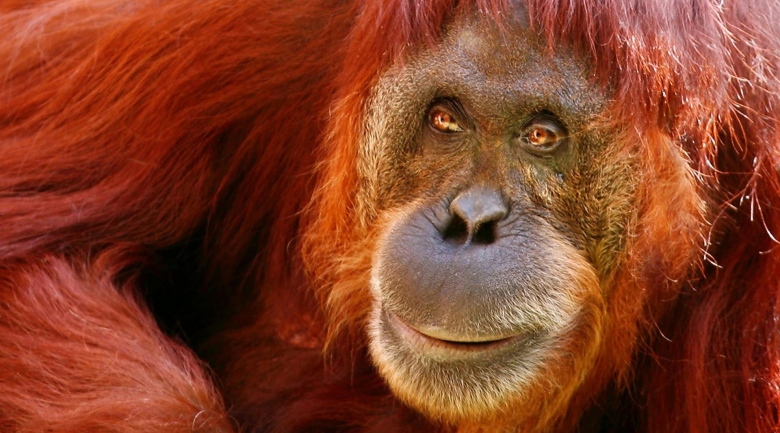
Chimpanzees and orangutans really do have personalities "like people", researchers say.
For years experts have debated whether great apes truly display human-like personalities – or if such behaviour is simply the anthropomorphic projections of human observers.
The research team used a statistical technique to "remove" any biases apparent in human observers of the apes’ behaviour, and they say their findings suggest man and ape really do share "personality dimensions".
"[Chimpanzees] have the same social problems that we do, they want to make friends and find mates and sort of gain position within their society," says team member Mark Adams, a researcher who conducted the research while studying for his PhD at the University of Edinburgh, UK.
Dr Alexander Weiss, senior lecturer at the University of Edinburgh, who also worked on the study, agrees that chimpanzee personality is "highly similar" to that of humans.
Researchers categorise human personality into five "dimensions", sometimes known as "the big five", he explains.
"Those dimensions are neuroticism, extroversion, openness to experience, agreeableness and conscientiousness."
Previous studies into non-human primates suggest that chimpanzees (Pan troglodytes) share these five dimensions with people, whilst orangutans (Pongo pygmaeus and Pongo abelii) display three of the five: extraversion, neuroticism and agreeableness.
These shared personality dimensions are best explained by our genetic similarities, says Dr Weiss.
"Humans and chimps share a common ancestor about 4 to 6 million years ago."
The common ancestor for humans and orangutans is thought to have existed fifteen million years ago, which explains why chimpanzees and humans are more similar in personality than orangutans and humans, says Dr Weiss.
Ape vs man
There is continuing debate amongst experts as to whether scientists should use anthropomorphic projections when studying how animals behave.
Dr Clive Wynne, professor of psychology at the University of Florida, Gainesville, US describes anthropomorphism as "a mistake" when "trying to understand animal behaviour."
Human beings have a very natural tendency to project human agency into almost anything that moves," he tells BBC Nature.
But despite our inevitable "human perspective" in the way we see the animal kingdom, he says, "since these animals are not us, although it is difficult, we should nonetheless struggle to get our own perspective out of the way and to try and see them for themselves."
The research team carrying out the study, which features in the journal Animal Behaviour, wanted to test the extent to which human observers of chimpanzee and orangutan behaviour might be biased in their reports.
"There’s sort of a fear that human observers and ‘raters’ are projecting their own ideas about personality on to these animals," says Mr Adams.
But until now, this theory "hasn’t actually really been tested in great apes."
Members of the research team – who also came from from Kyoto University in Japan and the University of Arizona, Tucson, US – issued questionnaires to around 230 people observing chimpanzees and orangutans in zoos and research centres in the US, Canada, Australia and Japan.
